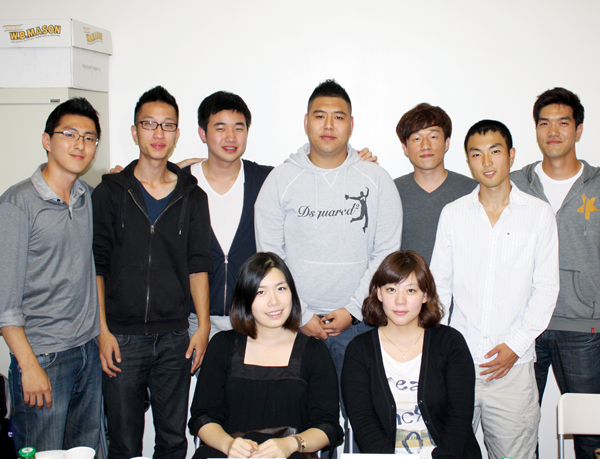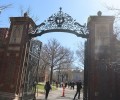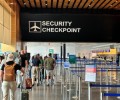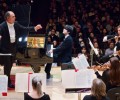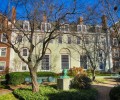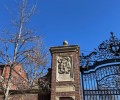| College Life 101 as an International Student in Boston |
| 보스톤코리아 2011-09-19, 13:45:12 |
Translated by SeungYoun Woo Korean international students always have to encounter prejudice against them as “students who will leave the country as soon as they finish studying,” whether they are in Korea or the U.S. However, none of them actually seems uncomfortable or hurt even if they live their life in continuous prejudice. Instead, they get together as an official group with the title of BKLA (Boston Korean Leaders Association). Within the association, they think of each member as a ‘private diplomat’ and they are making a lot of effort to bring great honor to their homeland, Korea. Most of them feel lucky to be in Boston and they seem very confident when they discuss their worries. Their worries are about more than just study and career. Participants Joon-Ki Kim – Babson College (Finance and Strategy, 3rd yr). Babson KSA - Vice President. Jin-Eun Song – Babson College (Business, 3rd yr). BKSA – The 1st President. Jung-Man Park – Brandeis (Sociology, 2nd yr). Brandeis KSA – Vice President Jeong-Woo Cho – Brandeis (Media & Business-double major, 2nd yr). Brandeis KSA - President So-Yeon Lee – Wellesley (Chemistry, 2nd yr). Wellesley KSA – International Student Representative. Bum-Joon Kim – UMass Boston (Political Science & International Relations, 4th yr). BKLA’s Founding Member. Won-Kyung Lee – Boston University (Hotel-Management, 3rd yr). BU KSA – Vice President. Soo-Kon Yu – Boston University (Mechanical Engineering, 3rd yr). Boston Korean Soccer Tournament – Steering Committee. Min-Seok Jeong – UMass Boston (Management, 3rd yr). UMass Boston KSA – President. ► What is BKLA? J. Song: It is the abbreviation of Boston Korean Leaders Association. Only staff members of each school’s Korean Students Association (KSA) are allowed to join by vote of the current officers. The students from different schools can gather to promote friendship and share information through this gathering. B. Kim: I was having dinner with the KSA presidents of BU, BC and UMass Boston at the end of the last year. During our meeting, we happened to talk about Korean students in the city getting all together. Starting from that conversation, the KSA members of 8 colleges (Babson, Brandeis, BU, BC, UMass Boston, MIT, Wellesley, and Northeastern) in Boston have been united as a group until now. ► Are there any tips you suggest to freshmen? B. Kim: The most important thing is to adjust to the college environment, which is totally different from high school. I have seen many students that just enjoy too much the freedom given in college. S. Yu: I once calculated how much each class costs. One class costs around $200. Thus, skipping classes for the whole day costs $1,000. Nonetheless, many freshmen are actually not attending class, and don’t consider this financial reality. J. Cho: Since Brandeis is far away from downtown, Korean students in my college are just stuck in their dorms when they do not attend classes. However, in the same situation, I see other non-Korean students do some other activities on campus. S. Lee: Many Korean students get along with only Koreans. I would recommend to never hesitate associating with foreign students. M. Jeong: On the other hand, it is not right to reject hanging out with Koreans. Sometimes, it is possible to get information from Koreans that is never heard from non-Koreans. ► What is it like to live in Boston as a student? S. Yu: I have seen many students that cannot adjust to the changeable weather in winter. Winter goods are definitely necessary to survive in Boston. J. Kim: There are many headquarters of leading companies, such as Oracle, GE and State Street Bank, located in Boston. If any student is interested in business, Boston is a great place to have good connections for future careers. J. Park: Many elite sports teams are also around Boston. It is the city for sports fans, who can have exciting lives every day. B. Kim: Not many cities in the U.S. have more than 300 years of history but Boston is the city representing a living history. ► What caused you to attend your college? J. Kim: The Business Start-up Management program at Babson is the most famous business program in the U.S. I think it is the best choice for students who are dreaming about their own businesses. J. Park: I was well aware of the renowned Liberal Arts Program at Brandeis. S. Lee: My college was very interesting to me when I attended the open-campus event. I heard that the relationship between students and professors is also very good. W. Lee: The alumni association of my college is well organized. M. Jeong: I think my college has a great faculty because it is a state college, and also, since the campus is surrounded by the sea, the view is gorgeous. The student-to-faculty ratio is 15:1 and most classes have around 20 students. ► What if you went to college in Korea? S. Yu: Most college students in Korea, as they get close to graduation, they just want to earn money in a major company for the future. They need to have a wider perspective. Wouldn’t I be one of them with a much narrower perspective if I were in Korea? J. Song: Koreans’ prejudice against students who are studying abroad is still the same, and I feel it every time I visit Korea. I wish they would think of us as just the same Koreans but seeing and learning different things. S. Lee: I was studying in the U.S. until middle school and graduated high school in Korea. Even my best friends said, “You are lucky that you are rich. You can take the SAT as many times as you can in a year.” W. Lee: I came to the U.S. to study abroad early when I was in elementary school. Then, I graduated high school in Korea. I received a special admission into college for my English abilities, so I did not really have to care about my GPA. I was even hated by my teacher. It is not my fault but people were being harsh with me just because I am different. My way of thinking is already different from my friends in Korea. I think that students in Korea have very limited dreams and they are only seeking stability instead of challenge. J. Jeong: Students in Korea pursue only one common and accepted way. Conversely, overseas students here pursue different kinds of future lives. I am happy in this way, even if I get blamed. ► What are your thoughts about BKLA or the Korean community in Boston? J. Song: I think that the development of the Korean community in Boston is very weak. It is one of the problems that BKLA has to solve. We, BKLA would like to be a gateway to connect Koreans. S. Yu: If only the same or similar aged people are gathered, then development of the society will be very limited. I wish that different kinds of Korean associations could communicate without bounding by college. [Do you mean “I wish that different kinds of Korean associations could communicate, not just those for college students”--?] J. Kim: Each of us represents the image of Koreans. It surely applies in the U.S. society. Thus, I try to live up to a high standard. W. Lee: I hope that Korean society sets a major goal to reach and develop further. ⓒ 보스톤코리아(http://www.bostonkorea.com), 무단전재 및 재배포 금지 |
 |
 의견목록 [의견수 : 0]
의견목록 [의견수 : 0]
|
 |
| 등록된 의견이 없습니다. | |
|
|
 프리미엄 광고
프리미엄 광고

161 Harvard Avenue, Suite 4D, Allston, MA 02134
Tel. 617-254-4654 | Fax. 617-254-4210 | Email. [email protected]
Copyright(C) 2006-2018 by BostonKorea.com All Rights Reserved.
Designed and Managed by Loopivot.com










